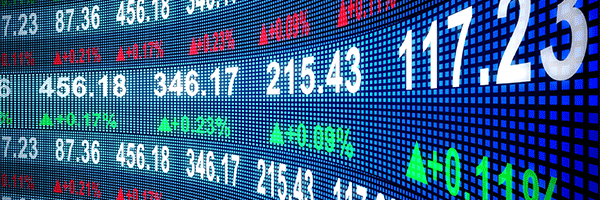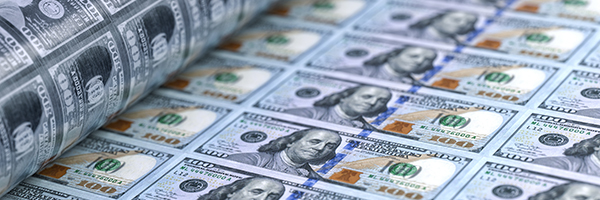
Special Report: 10 Picks from the Rest of the World–today first 5 picks
Now you need to own more besides U.S. stocks. But what? With my answer, here’s my Special Report: 10 Picks from the Rest of the World

Now you need to own more besides U.S. stocks. But what? With my answer, here’s my Special Report: 10 Picks from the Rest of the World

Have analysts lowered earnings estimates more than usual for companies in the Standard & Poor’s 500 for the second quarter?
FactSet says the answer is yes. During the month of April, analysts lowered EPS estimates for the second quarter by a larger margin than average. The bottom-up EPS estimate for the second quarter decreased by 2.4% (to $63.96 from $65.55) from March 31 to April 30

If you’re looking for a way to add clarity to the somewhat middled first quarter GDP report of last week, I’d suggest a look at a number called “domestic final sales.” Like the GDP report, domestic final sales shows a slowing economy. But without the possibly distorting effects of a big pickup in imports the growth rate remains solidly positive. But projections for domestic final sales growth for the rest of 2025 are downright dismal.

I don’t expect the Wedneday, May 7, meeting of the Federal Reserve to produce no action on cutting interest rates, but intense scrutiny of the Fed’s words as investors search for clues on when the central bank will go into full rate-cuttinging mode.

As economic indicators go, recent results from McDonald’s, Chipotle Mexican Grill, and Starbucks are worth paying attention to–and the message the three consumer giants are sending isn’t a positive one for the U.S. economy.

In the swaps market, traders increased their wagers on four quarter-point reductions by the end of the year, with the first fully priced in for July.

Seems like we’re back again to a world where all the bad news is good news.

The U.S. economy contracted at annualized rate of 0.3% in the first quarter of the year. That’s much slower growth than the positive 2.4% rate in the fourth quarter of 2024. This is the first quarterly decline in real GDP since the first quarter of 2022, and it was below expectations for a positive growth rate of 0.2%.

Today General Motors announced that it was pulling its previous earnings guidance for 2025 and putting $4 billion in share buybacks on hold until it has more clarity on the impact of U.S. tariffs.

Risky corporate-debt markets–what you and I call the junk bond market–have room to drop further due to to damage from the tariff war.“We’re likely to see spreads widen from here as we see further deterioration in risk assets and in overall credit quality,” Mitch Garfin, BlackRock’s co-head of leveraged finance, told Bloomberg.

Today, Monday April 28, I’m selling my last two Call Options on the VIX, the CBOE S&P 500 Volatility Index. Not because we’re done with volatility. No way. I expect lots more volatility in the weeks and months ahead. And I expect to put this trade on again. But because these two options expire on May 21

This week’s quarterly earnings reports from Microsoft (MSFT), Apple (AAPL), Meta Platforms (META) and Amazon.com (AMZN) face high earnings expectations from Wall Street analysts. Analysts expect the Magnificent Seven-—which also includes Alphabet (GOOG), Tesla (TSLA) and Nvidia (MVDA)-—to deliver an average of 15% earnings growth in 2025. That expectation has barely budged since the start of March despite the uncertainty of the Trump tariffs. The four megacaps reporting this week collectively have a nearly 20% weighting in the Standard & Poor’s 500.